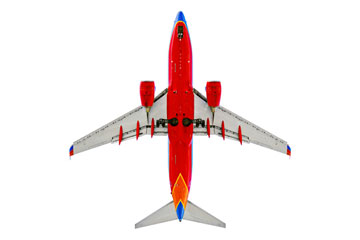
Ninety-two flights sat on the tarmac at a U.S. airport for more than three hours.
(5 of 5)
As the United flight approaches JFK, the pilot announces that we are arriving early. Perhaps, but that's only because there's a time cushion routinely built into airline schedules; a flight is considered on time even if it arrives up to 15 minutes late. In reality, as many as 40% of flights nationwide are late, a consequence of an outdated air-traffic-control system and carriers' squeezing everything they can out of a handful of very busy hubs. Being early, however, often just means that you get to wait on a taxiway for a departing jet to get clear of your gate. At least the chair's comfy.
American and US Airways have gone on the offensive against the Department of Justice, vowing to fight for their merger in court on the grounds that it is pro-consumer. The companies say the combined airline networks are complementary and would offer more choices to more destinations across a broader global network. For frequent flyers, there's also access to American's OneWorld alliance, a network of connections with foreign airlines. The financial stability of the merger would also ensure job stability, the two carriers say.
The DOJ argues that having a grand total of three legacy carriers will lead to higher fares, especially at dominant hubs. Said Assistant Attorney General Bill Baer: "Consumers will lose the benefit of head-to-head competition between US Airways and American on thousands of airline routes across the country--in cities big and small." In the meantime, the merger is frozen until after the trial, which may not start until next year.
Economic history tells us that consolidation in the airline industry--and in virtually any industry--leads to higher prices. But the previous mergers were necessary for the airlines to survive. The DOJ could negotiate an agreement in which the new American gives up slots at Reagan National or Charlotte, say, to foster more competition here and there. But a settlement would surely mean a reduction of service to the smaller markets now served by those airports.
That's the way it is in the airline industry these days. Whatever happens can hardly make things worse. Until it does.
